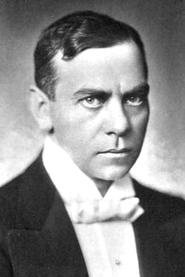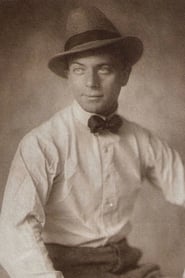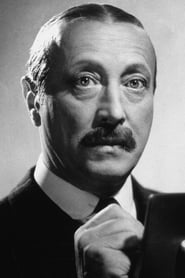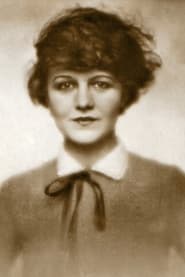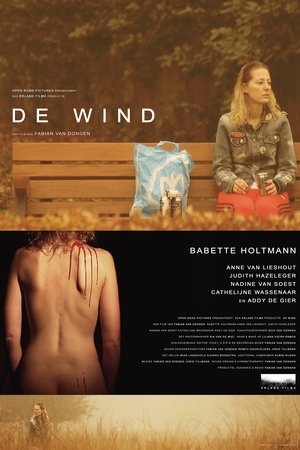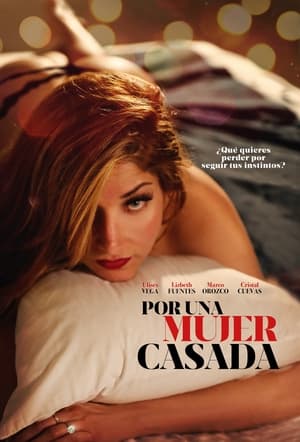
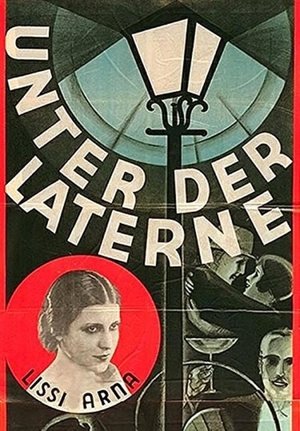
Under the Lantern(1928)
Else Riedel (Lissy Arna), locked out by her authoritarian father, seeks refuge with her boyfriend Hans. Complications threaten when Hans's roommate Max falls in love with her, but the situation is resolved: the three remain friends, and decide to form a music hall act. They want to ascend, but how? A way out beckons when a theatrical agent named Nevin enters Else’s life. He is played by Hubert von Meyerinck as a slick and oily villain, who oozes refinement; his experience behind bars is waved away with a silk scarf. He is cunning to the point of perfidiousness, but is not completely unsympathetic. He also embodies a new type - the scrounger.
Movie: Under the Lantern
Top 10 Billed Cast
Louis
Tanzmeister
Frieda

Unter der Laterne
HomePage
Overview
Else Riedel (Lissy Arna), locked out by her authoritarian father, seeks refuge with her boyfriend Hans. Complications threaten when Hans's roommate Max falls in love with her, but the situation is resolved: the three remain friends, and decide to form a music hall act. They want to ascend, but how? A way out beckons when a theatrical agent named Nevin enters Else’s life. He is played by Hubert von Meyerinck as a slick and oily villain, who oozes refinement; his experience behind bars is waved away with a silk scarf. He is cunning to the point of perfidiousness, but is not completely unsympathetic. He also embodies a new type - the scrounger.
Release Date
1928-08-08
Average
7
Rating:
3.5 startsTagline
Genres
Languages:
No LanguageKeywords
Recommendations Movies
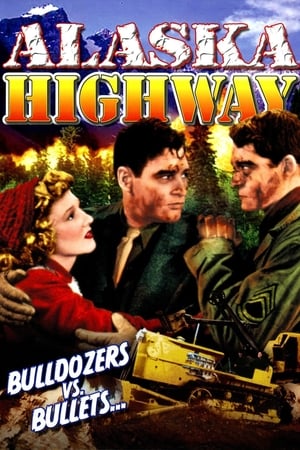 5.0
5.0Alaska Highway(en)
Pop Ormsby wins the contract from the Army Engineer Corps for the construction of the Alaska Highway connecting Alaska to Canada. The elder of his two sons, Woody Ormsby, decides he had rather fight with bullets than bulldozers but is assigned by the Army to work on the project. Woody and his younger brother Steve are both rivals for the affection of Ann Coswell, the daughter of road engineer Blair Caswell.
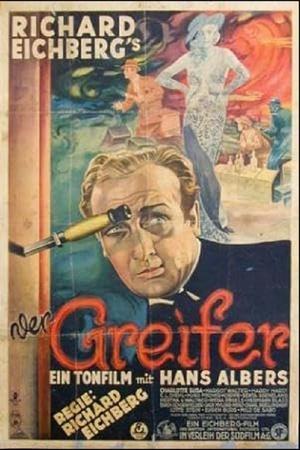 5.0
5.0The Copper(de)
Inspector Harry Cross is investigating a murder case with a knife throwing killer in the the seedy world of night clubs.
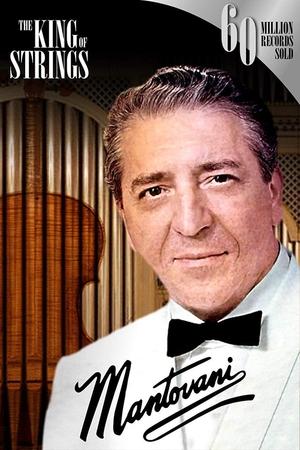 6.0
6.0Mantovani, the King of Strings(it)
Known for his unmistakable cascading strings and recordings such as Charmaine, Mantovani enthralled the world with his sublime arrangements. This is the story of the man and his music.
 3.3
3.3Cold Hard Cash(en)
Watch what happens when two beautiful bad girls with no option are put in a desperate situation.
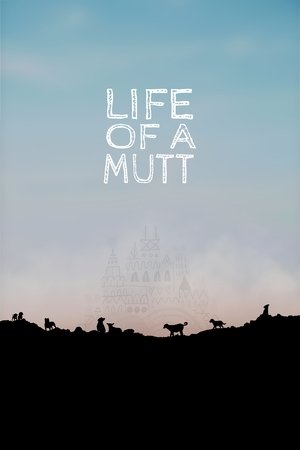 10.0
10.0Life of a Mutt(sr)
Through seven scenes, the film follows the life and destinies of stray dogs from the margins of our society, leading us to reconsider our attitude towards them. Through the seven “wandering” characters that we follow at different ages, from birth to old age, we witness their dignified struggle for survival. At the cemetery, in an abandoned factory, in an asylum, in a landfill, in places full of sorrow, our heroes search for love and togetherness. By combining documentary material, animation and acting interpretation of the thoughts of our heroes, we get to know lives between disappointment and hope, quite similar to ours.
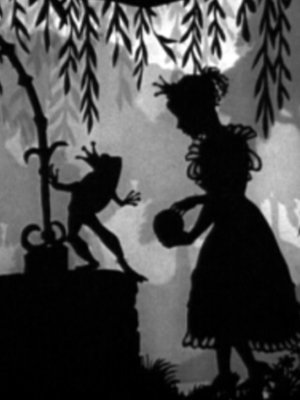 6.3
6.3The Frog Prince(en)
"The Frog Prince" was one of several adaptations of Brothers Grimm fairytales that Lotte Reiniger made in London between 1953 and 1955: others include "The Gallant Little Tailor", "Hänsel and Gretel", "Sleeping Beauty", "Snow White and Rose Red" and "The Three Wishes".
 10.0
10.0Uma Valsa para Rosa(pt)
In this documentary, we follow the story of Rosana, who is about to turn 60 and remembers her life journey.
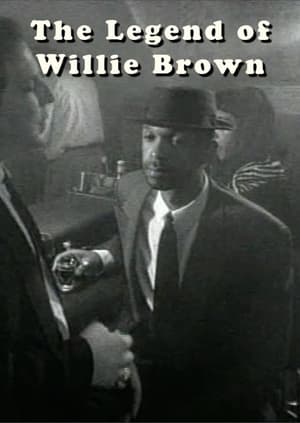 5.0
5.0The Legend of Willie Brown(en)
Another genre exercise, this one sees Louis C.K. parodying jazz mockumentaries.
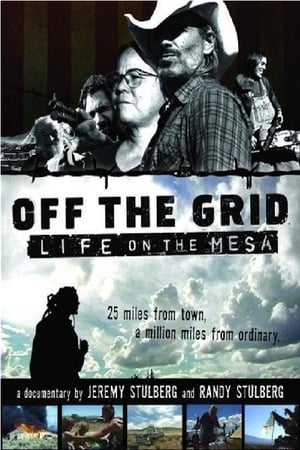 6.7
6.7Off the Grid: Life on the Mesa(en)
Twenty-Five miles from town, a million miles from mainstream society, a loose-knit community of eco-pioneers, teenage runaways, war veterans and drop-outs, live on the fringe and off the grid, struggling to survive with little food, less water and no electricity, as they cling to their unique vision of the American dream.
 4.9
4.9Moscow, I Love You!(ru)
18 directors, 18 novels, 18 short stories about Moscow...
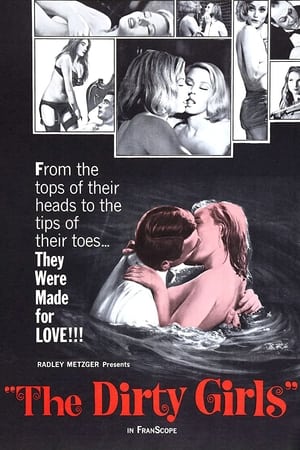 4.4
4.4The Dirty Girls(en)
In Paris, the City of Love, Garance can be found each night on the Champs-Elysees, or in a small bistro. This evening, Garance will entertain a shy young student, a hot-headed sadist, and an older gentleman.
 6.6
6.6Shadow in the Sky(en)
Burt, a Marine suffering from Battle Fatigue, is deathly afraid of rain and confined to an asylum, but showing improvement. He wants to live with his sister's family, but they have young children.
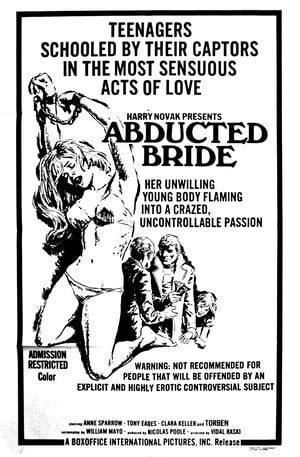 5.0
5.0The Abducted Bride(en)
The unrated US version of The Sinful Dwarf. Not to be confused with the Hardcore version. A tamer version similar to how Caligula was released. Olaf and his mother run a boarding house which fronts for a white slavery ring. When a young couple moves in the wife becomes suspicious of the landlords which lead her to be abducted into the slavery ring. Released in 1973 by Eduardo Fuller.
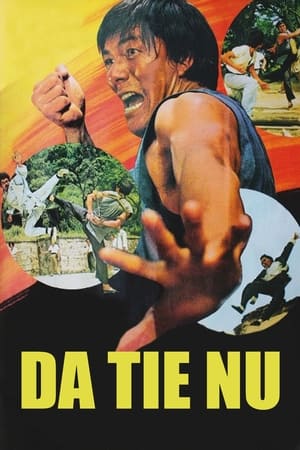 6.4
6.4The Dumb Ox(cn)
A group of thiefs takes over a village. The main character is the blacksmith of the village. He has a criminal record as a thief but has served his time and now earns an honest living. He is first accused by the citizens of the village, but eventually he finds out the true criminals and challenges them.
 5.7
5.7East of Fifth Avenue(en)
A kindly, elderly couple who run a New York City boarding house form the steady center around which the lives and loves of their various residents unfold. Borrowed money, a lovelorn chorus girl, and a tragic misunderstanding set in motion the chain of events in East of Fifth Avenue’s tender pageant of life.
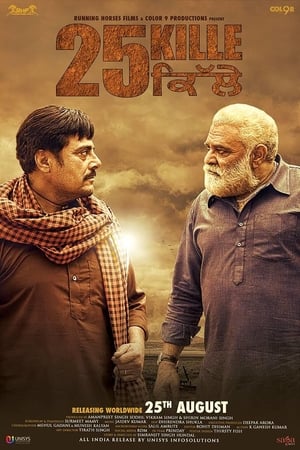 6.0
6.025 Kille(pa)
Four brothers receive news of an inheritance and must contend with an unscrupulous landowner to receive their birthright.
 10.0
10.0Jon Secada: Live On Sound Stage(en)
Live On Soundstage performance was originally broadcast on the PBS Soundstage series. Songs include cuts from Jon Secada's recent tribute to Latin singer Beny More' and also Jon's classic pop hits, "Just Another Day," "Do You Believe In Us", as well as many others. With a career spanning more than two decades, three Grammy Awards, 20 million records sold, and leading roles on Broadway, Jon Secada's acclaimed romantic sound has resulted in numerous hits in English and Spanish, establishing him as one of the first bilingual artists to have international recognition in both markets.
Tihar(en)
Tihar is a heartwarming short film celebrating the cherished Hindu festival of brothers and sisters. Bipana and Kalpana, two sisters living in the United Kingdom, invite their brothers, Suraj, Naresh, Dhiraj, to join them for a special Tihar celebration. The siblings, originally from Nepal, come together on this meaningful day, sharing laughter, love, and traditions far from their homeland. The brothers present thoughtful gifts to their sisters as a token of love, and together they light diyas, exchange blessings, and enjoy a festive meal. The film highlights the essence of Tihar as a time to strengthen family bonds. It reminds viewers that amidst life's challenges, festivals provide a perfect opportunity to pause, reconnect, and cherish time with loved ones. The message is simple yet profound: family gatherings and celebrations are the true essence of life.
Similar Movies
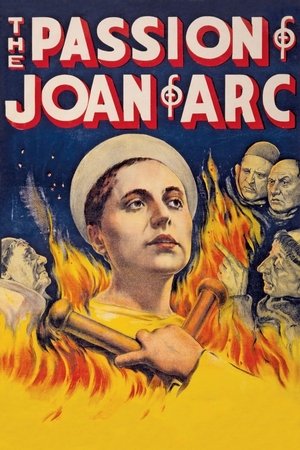 8.0
8.0The Passion of Joan of Arc(fr)
A classic of the silent age, this film tells the story of the doomed but ultimately canonized 15th-century teenage warrior. On trial for claiming she'd spoken to God, Jeanne d'Arc is subjected to inhumane treatment and scare tactics at the hands of church court officials. Initially bullied into changing her story, Jeanne eventually opts for what she sees as the truth. Her punishment, a famously brutal execution, earns her perpetual martyrdom.
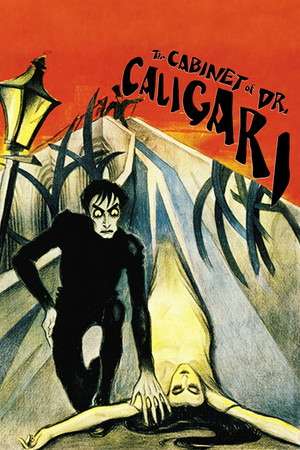 7.9
7.9The Cabinet of Dr. Caligari(de)
Francis, a young man, recalls in his memory the horrible experiences he and his fiancée Jane recently went through. Francis and his friend Alan visit The Cabinet of Dr. Caligari, an exhibit where the mysterious doctor shows the somnambulist Cesare, and awakens him for some moments from his death-like sleep.
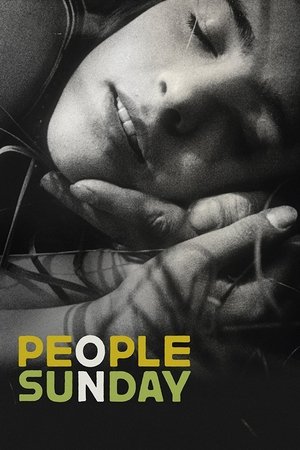 7.2
7.2People on Sunday(de)
A semi-documentary experimental 1930 German silent film created by amateurs with a small budget. With authentic scenes of the metropolis city of Berlin, it's the first film from the later famous screenwriters/directors Billy Wilder and Fred Zinnemann.
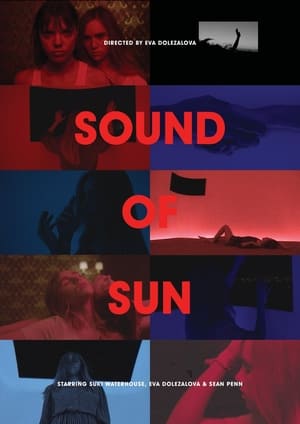 7.5
7.5Sound of Sun(en)
The discovery of self-awareness in a twisting venture between dreams and reality. (The first piece of the director's Transformational Trilogy)
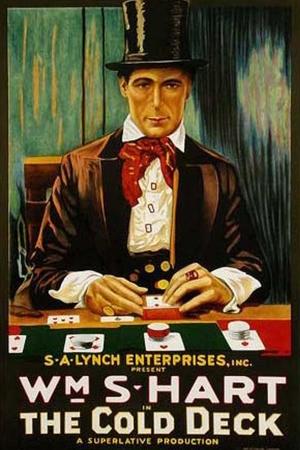 0.0
0.0The Cold Deck(en)
Gambler "On-the Level" Leigh (William S. Hart) is forced to leave his high rolling lifestyle to move his ailing sister Alice (Mildred Harris) to the healing climate the mountains. Financial strain compels him to resume his favored vocation. Unfortunately for Level, the dance hall girl Coralie (Alma Rubens) doesn't take rejection well and convinces the dealer to clean him out with a "cold deck". A desperate robbery ensues, leading to Level wanted for murder!
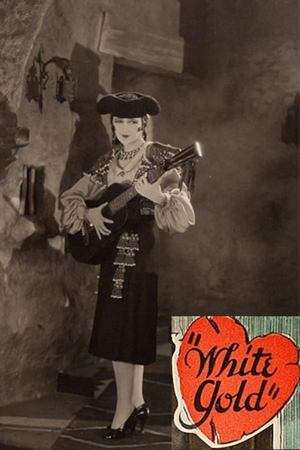 5.9
5.9White Gold(en)
A sheep farmer brings his new wife to his father's ranch and the old man takes an instant dislike to her.
 6.0
6.0Piano Love(zu)
A hustling hop-hop artist and an up-and-coming amapiano dancer put aside their differences to join forces to defeat genre-defining stereotypes and support each through life struggles.
Children's Souls Accuse You(xx)
Children's Souls Accuse You is a 1927 German silent drama film directed by Curtis Bernhardt and starring Albert Steinrück, Nathalie Lissenko and Walter Rilla. It was made with an anti-abortion theme.
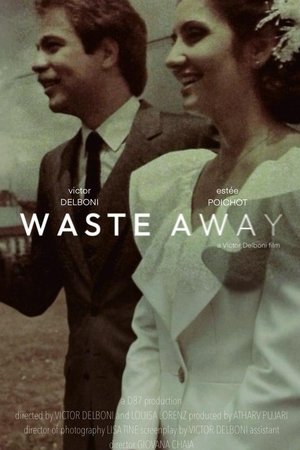 0.0
0.0Waste Away(en)
The story Waste Away revolves around a family grappling with the impact of a progressive neurological disease on their lives. It begins with a younger couple, David and Kate, facing the grim reality of David's diagnosis. As they struggle to come to terms with the implications, their relationship is tested by fear, anger, and uncertainty. Years later, the story intertwines past and present, showing an older David and Kate reflecting on their journey. Despite the pain and challenges, they find moments of peace and acceptance. The narrative explores themes of love, memory, and resilience, culminating in a poignant depiction of loss and the enduring bonds that remain even after the end.
 0.0
0.0The Valley of Doubt(en)
Dissipated youth Tommy Hilgrade is sent to the lumber lands in the Northwest by his father who hopes that hard living will reform his son. Accompanying Tommy is his sister Marion. Upon their arrival in Canada, lumber foreman Jack Macy is attracted to Marion but, unknown to her, he contributes to Tommy's addiction to drink and gambling. When Marion falls in love with French Canadian Jules Bonnivet after he rescues her from a fall through the ice, Macy schemes to destroy their romance by fabricating the story that Jules is responsible for Tommy's downfall.
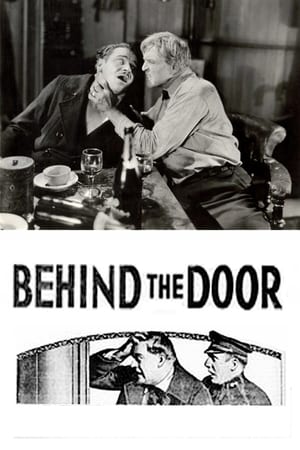 6.9
6.9Behind the Door(en)
Oscar Krug is looked upon with suspicion by his neighbors because of his German name. When the US is drawn into the war with Germany, he enlists and travels the seas with his wife, Alice Morse. During a submarine attack Alice is snatched from Krug's side by a German officer. Krug now lives to have his revenge, and when the opportunity presents itself, he will have it.
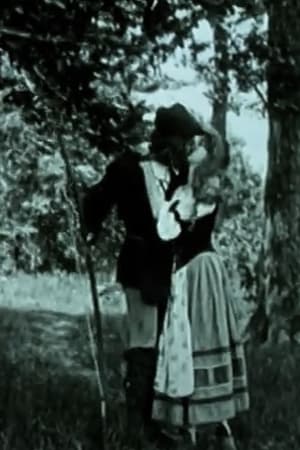 5.0
5.0Robin Hood(en)
Robin Hood is a 1912 film made by Eclair Studios when it and many other early film studios in America's first motion picture industry were based in Fort Lee, New Jersey at the beginning of the 20th century. The movie's costumes feature enormous versions of the familiar hats of Robin and his merry men, and uses the unusual effect of momentarily superimposing images different animals over each character to emphasize their good or evil qualities. The film was directed by Étienne Arnaud and Herbert Blaché, and written by Eustace Hale Ball. A restored copy of the 30-minute film exists and was exhibited in 2006 at the Museum of Modern Art in New York City.
 7.6
7.6Battleship Potemkin(ru)
A dramatized account of a great Russian naval mutiny and a resultant public demonstration, showing support, which brought on a police massacre. The film had an incredible impact on the development of cinema and is a masterful example of montage editing.
 7.1
7.1Nanook of the North(en)
This pioneering documentary film depicts the lives of the indigenous Inuit people of Canada's northern Quebec region. Although the production contains some fictional elements, it vividly shows how its resourceful subjects survive in such a harsh climate, revealing how they construct their igloo homes and find food by hunting and fishing. The film also captures the beautiful, if unforgiving, frozen landscape of the Great White North, far removed from conventional civilization.
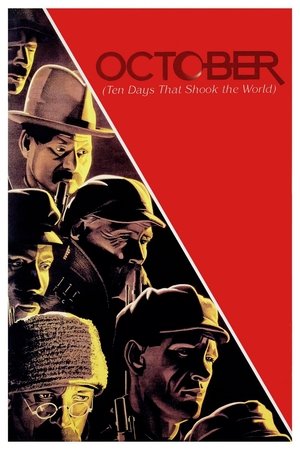 6.9
6.9October (Ten Days that Shook the World)(ru)
Sergei M. Eisenstein's docu-drama about the 1917 October Revolution in Russia. Made ten years after the events and edited in Eisenstein's 'Soviet Montage' style, it re-enacts in celebratory terms several key scenes from the revolution.
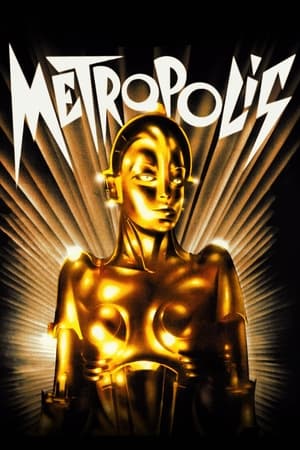 8.1
8.1Metropolis(de)
In a futuristic city sharply divided between the rich and the poor, the son of the city's mastermind meets a prophet who predicts the coming of a savior to mediate their differences.
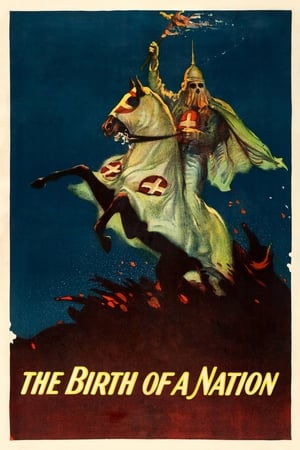 6.0
6.0The Birth of a Nation(en)
Two families, abolitionist Northerners the Stonemans and Southern landowners the Camerons, intertwine. When Confederate colonel Ben Cameron is captured in battle, nurse Elsie Stoneman petitions for his pardon. In Reconstruction-era South Carolina, Cameron founds the Ku Klux Klan, battling Elsie's congressman father and his African-American protégé, Silas Lynch.

